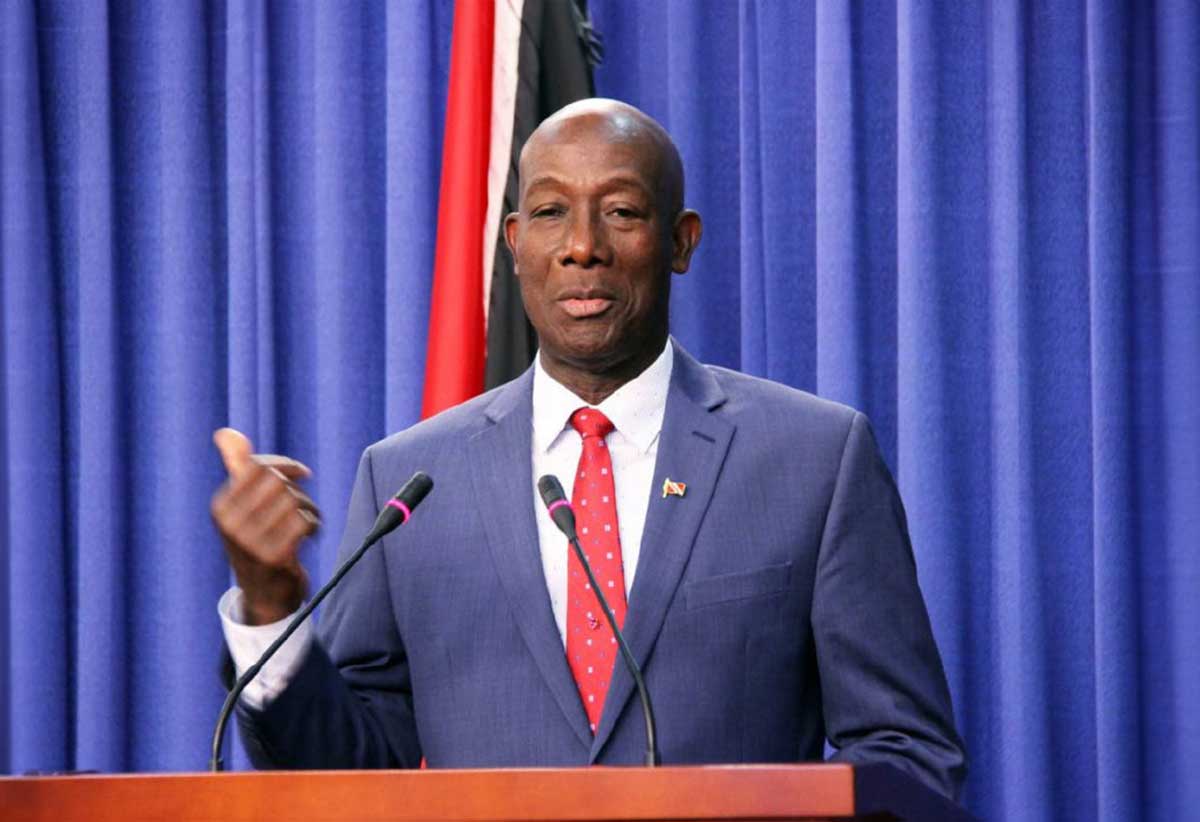
In celebration of the Caribbean Community’s (CARICOM) 50th anniversary, heads of state across the region will be placing letters into a special time capsule which will be sealed for the next 50 years.
The capsule, which will also contain their reflections, advice and lessons, will be addressed to their successors, to be opened by them on July 4, 2073. In a nod to the regional organization’s history, the ceremony took place will take place in Chaguaramas on Tuesday.
This news came from Trinidad & Tobago’s Prime Minister Dr Keith Rowley who was speaking during the twin-island’s hosting of CARICOM’s 50th anniversary opening ceremony yesterday afternoon.
Rowley talked about the growth of the organization from its inception in 1973 to now, highlighting its importance, despite the “ nay ” saying people from around the world.
“Here we are today, 50 years on, side by side in mutual solidarity, regard, respect and esteem; strong, together and unified. Together this regional family of nations can examine their achievements during the last half century. We have faced many challenges and have risen to overcome them despite the difficulties through our cooperation, shared goals and above all else through our friendship within CARICOM.
“Our regional integration movement has not only survived but it has thrived, expanded and flourished. Whilst we recognize there is a whole lot more to be obtained at this juncture, we can proudly say that we have been going in the right direction. I have witnessed first-hand the way that CARICOM has remained relevant to the needs, dreams and aspirations of its regional citizenry. Our children need to be taught its relevance and its history.”
He was keen to stress that as the Caribbean entered the post-pandemic era, the bonds forged among members would be more important than ever as the region continued to face challenges. In Rowley’s opinion, it was paramount that the Caribbean charted its own destiny, citing the decision to sign the revised treaty of Chaguaramas in 2001 and forming the CARICOM Single Market and Economy as an example.
CARICOM Secretary General, Dr Carla Barnett expressed similar sentiments in an earlier address, stating that the organization had built a strong foundation over the past 50 years. However, she noted expansion of inter-regional trade, hassle free movement of regional citizens, the pervasive nature of crime and insecurity were areas that stood out in need of fixing immediately. Barnett also believes food security remains a key issue regionally, but noted that the thrust to reduce the food import bill by 20 per cent by 2025 was gathering traction.
She revealed that the action plan for CARICOM’s 2030 Human Resource Development Strategy was currently being implemented. The strategy seeks to provide youth people in the Caribbean with the tools necessary to function effectively in the 21st Century.
“We are seeking to embrace even more innovative ideas from our young people and moving to provide opportunities which challenge their creativity into areas of entrepreneurship. Furthermore, a significant part of our agro-food agenda is encouraging young people into the sector, utilizing the new tools of Information Technology to increase productivity and build sustainable livelihoods,” Barnett said.
CARICOM was established by the Treaty of Chaguaramas and came into effect on August 1, 1973. Barbados, Jamaica, Guyana and Trinidad & Tobago were the founding nations.
Now, it consists of 15-member states as Antigua & Barbuda, The Bahamas, Belize, Dominica, Grenada, Haiti, Montserrat, Saint Kitts and Nevis, Saint Lucia, Saint Vincent and the Grenadines and Suriname have joined. There are also five associate members in Anguilla, Bermuda, British Virgin Islands, Cayman Islands and Turks & Caicos Islands.













